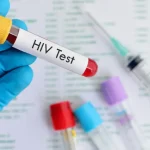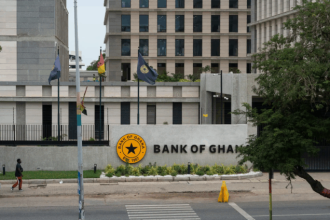The Bank of Ghana (BoG) has launched a new guideline that would help better regulate the purchase of government securities like treasury bills, bonds, notes and Eurobonds.
The Repurchase Agreement launched on the sidelines of the IMF/World Bank Annual Meetings in Washington DC is expected to give some legal framework and “comfort” to investors that actively participate or buy short term government papers, notes and bills.
Ghana is the third country in Africa to put in place these structures and regulations to oversee the repurchase of Agreement and trading.
These guidelines, according to the Bank of Ghana have been developed in consultation with key market stakeholders in the financial sector namely: Ghana Fixed Income Market (GFIM), Central Securities Depository (CSD), with technical support from International Capital Markets Association (ICMA) and Frontclear. This would oversee repo and repurchase agreement in the country.
Launching the guideline in Washington DC, Governor of the Bank of Ghana Dr Ernest Addison noted that the agreement if properly structured “can be become an effective vehicle for monetary policy transmission process and help the Central Bank act more swiftly as a lender of last resort during periods of market stress”.
“Repo markets also foster price discovery by facilitating primary market activity”, The Governor of the Bank of Ghana noted.
He said, “We should also realize that the excessive use of repos can facilitate the buildup of leverage and encourage the over-reliance on short term funding, adding that “It is against this background that we are launching a GRMA-based repo market in Ghana to promote legal certainty on the enforceability of netting arrangements.”
Dr Addison disclosed that a takeoff launch is expected to happen in Accra on November 12 this year, “It is our expectation that these guidelines will provide the required boost in creating a vibrant, liquid and transparent bond market in Ghana” he added.
The Governor also revealed that “As of August of 2019, the stock of repos and reverse repos outstanding between the Bank of Ghana and the commercial banks in Ghana was equivalent to US$350 million”
Speaking at the program, the First Deputy Governor of the Bank of Ghana Dr Maxwell Opoku Afari also added that, “adoption of these guidelines I believe will not only ensure legal certainty and enforceability but will also improve market transparency, liquidity and participation”
He said, Ghana is also in the process of getting a corporate insolvency bill passed, and the BoG will issue a notice to clarify the eligibility of netting arrangements under the current Banks and Specialized Deposit-Taking Institutions Act (BSDTI Act).
“This would help make Ghana only the third netting positive jurisdiction in Africa and we look forward to the positive effect this will have on our economy” the first deputy governor of the Bank of Ghana added.

Head of financial markets at the Bank of Ghana, Stephen Opata also said it would improve market access, depends on the market and remove potential risk for investors that participate in our market, “international players would see the advantage here in Ghana can equally take advantage and afford us an opportunity to defend our markets.”
He also added that it would go a long way to boost liquidity in the local bond market and help reduce the cost of borrowing for the government.
Market players on the Repurchase Agreement
Speaking to JoyBusiness in Washington DC, Deputy Managing Director of Fidelity Bank, Sam Aidoo praised the guidelines, describing it as an initiative that would really help grow and develop the market, adding that “ there are things that regulators need to take a lead on to help bring about the needed excitement on the market.”
He noted that “this would also help us use the assets that we already have on our books in a more effective way done in the past.”
Mr Aidoo added, “as we speak we have about GH¢3 billion in government assets and up until today I can only use it overnight borrowing, but now this is providing me with a framework to extend that.”
Understanding the Repurchase Agreement?
According to the Bank of Ghana, a repo is a generic name for both repurchase transaction and a sell/ buy-back arrangement.
It is a sale of quality of securities (by a seller ) at a purchase price at the start of the transaction and a simultaneous agreement to repurchase the securities from the other party (buyer) at a different price and at a future date ( if the intended repurchase date becomes an unscheduled bank holiday.
The sale of the securities implies an outright transfer of legal title from the seller to the buyer. The parties to the Repo transaction must sign up the global master Repurchase Agreement.
In the case of Bank and Special Depositors Institutions, this is a regulatory requirement in order to recognize the reduction of credit risk by collateral in the calculation of regulatory capital requirement.

What influenced this Guideline?
In 2017, a stakeholder committee in Ghana, led by the central bank agreed on a simple regulatory environment by following the international ‘norm’ but customizing it to the local environment.
Some of the reform measures that were identified that could improve the legal framework for the financial markets in Ghana was the adoption of Global Master Repurchase Agreement GMRA for repo trading and at a later stage the GMSLA for securities lending, the linking of the local Central Securities Depository (CSD) to international clearing platforms like Euroclear and the strengthening of the insolvency framework in Ghana.
The Ghana Fixed Income Market (GFIM) governing council, which has been mandated to promote secondary market trading of securities supported the setup of a stakeholder committee with representation from the Ministry of Finance, the Bank of Ghana, the commercial banks, a lawyer from a private law firm, the Ghana Stock Exchange and the Ghana CSD to come out with the Guidelines for a GMRA-based repo trading in Ghana.
















